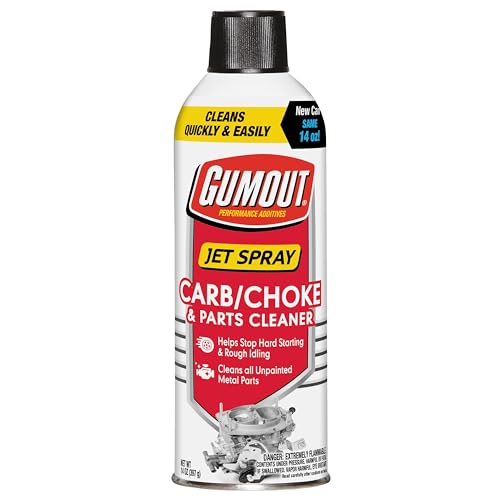In the realm of automotive maintenance and repair, the right cleaning chemicals play a paramount role. Two of the most frequently utilized products are brake cleaners and carburetor cleaners. Although they may seem interchangeable at a cursory glance, they each serve distinct purposes, and understanding their differences is crucial for optimal performance and safety. In this article, we will delve into the characteristics, applications, and best practices regarding these two invaluable cleaning agents.
Understanding Brake Cleaners
Brake cleaner is a specialized solvent designed to remove contaminants from brake components, including dust, grease, oil, and brake fluid. It typically comprises a volatile organic compound (VOC) solvent that evaporates rapidly, leaving no residue behind. One of the primary advantages of brake cleaners is their ability to dissolve stubborn grime without causing damage to the components they clean.
There are generally two formulations of brake cleaner: chlorinated and non-chlorinated. Chlorinated brake cleaners contain chemicals that can more effectively cut through oil and grease, making them particularly effective for heavy-duty applications. However, they may pose environmental and health risks due to their harmful fumes. Non-chlorinated versions, on the other hand, are more eco-friendly and safer for users but may require more effort for the same cleaning efficacy.
When to Use Brake Cleaner
Brake cleaner is indispensable in several scenarios involving braking systems. It is the go-to product when:
-
Replacing Brake Pads or Rotors: Prior to installation, it’s essential to clean the components thoroughly to ensure optimal adhesion and performance.
-
Routine Maintenance: Regular checks of your braking system can greatly benefit from a quick clean to remove buildup that may impair functionality.
-
Addressing Brake Noises: Squealing brakes can often signal the need for cleaning and maintenance; using brake cleaner can help alleviate the issue.
Using brake cleaner properly ensures not just a cleaner component, but also prolongs the lifespan of your braking system while enhancing safety.
Understanding Carburetor Cleaners
Conversely, carburetor cleaners are formulated to address the buildup of carbon, varnish, and other deposits in carburetors and fuel injectors. Unlike brake cleaners, which primarily target oil and grease, carburetor cleaners are designed to dissolve fuel residues and restore the performance of the fuel delivery system. These cleaners also come in aerosol sprays, making application straightforward.
The composition of carburetor cleaners often includes specialized detergents and solvents that not only cleanse but also help in restoring fuel flow. This is particularly important for vehicles equipped with carbureted engines, which can suffer from performance issues due to gunk build-up. Regular usage can prevent these issues and ensure smooth operation.
When to Use Carburetor Cleaner
Understanding the need for a carburetor cleaner is vital, especially for those who maintain and service older vehicles or small engines. Detecting the right moments to employ this cleaner can save operators considerable time and money:
-
Performance Issues: If a vehicle is experiencing stalling, rough idling, or sluggish acceleration, a thorough cleaning of the carburetor may resolve these symptoms.
-
Before Storage: Cleaning the carburetor before storing a vehicle, especially during offseason, helps prevent varnish buildup that can complicate future starts.
-
After Long Periods of Inactivity: Fuel can degrade over time, so a good cleaning helps restore functionality and prevents corrosion within the carburetor.
Comparative Analysis: Brake Cleaner vs. Carburetor Cleaner
Though both products feature prominently in automotive maintenance, their specific applications set them apart. Utilizing one in place of the other could lead to inadequate cleaning and possible damage:
-
Application: Brake cleaner is unrivaled for brake systems, while carburetor cleaner specializes in fuel systems.
-
Residue vs. No Residue: Brake cleaner evaporates completely and leaves no residue, making it perfect for sensitive components. Carburetor cleaner may leave some residue, necessitating thorough rinsing.
-
Composition: The base ingredients differ significantly; each product is tailored to excel in its designated role.
Safety Considerations
Using these cleaning chemicals responsibly is essential. Employing brake cleaner in a well-ventilated area and using PPE, such as gloves and safety goggles, is advisable to mitigate exposure risks. Carburetor cleaners similarly require caution, as inhalation or contact with the skin can be harmful. Always read and follow the manufacturer’s guidelines before application.
Conclusion
Both brake cleaners and carburetor cleaners are indispensable tools in any automotive enthusiast’s arsenal. Recognizing the appropriate situations to employ each product not only enhances the efficiency of vehicle maintenance but also promotes safety and longevity of components. With a thorough understanding of their functions and uses, you can ensure that your vehicle runs smoothly, efficiently, and reliably for years to come.
